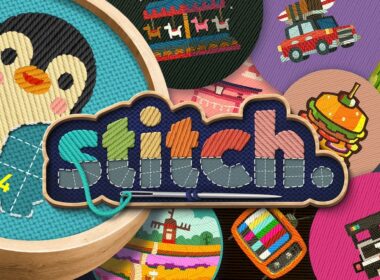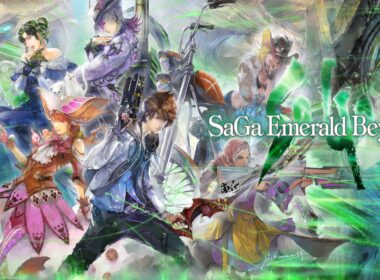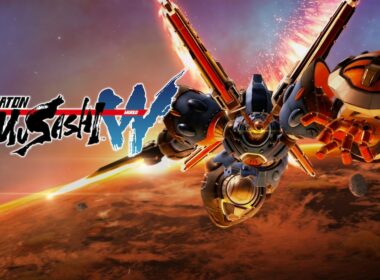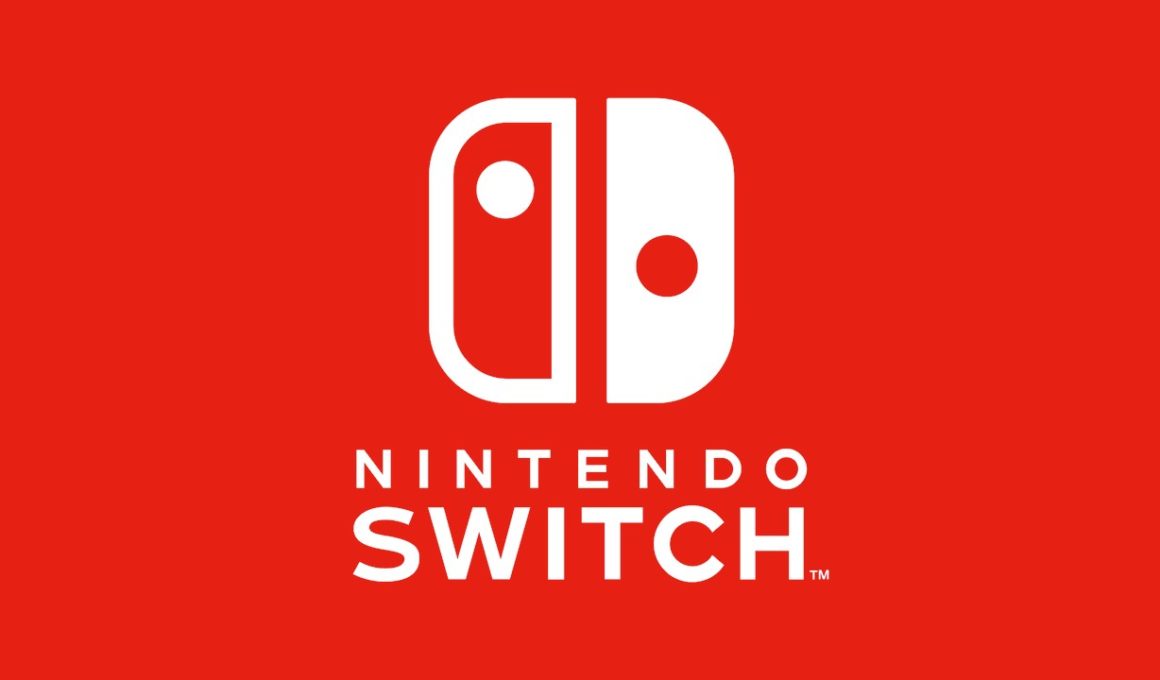Nintendo’s foray into the realm of free-to-play has been met with varying success. Steel Diver: Sub Wars struck a resounding, if niche, chord, whereas The Denpa Men: RPG Free! is continuing to draw in millions of players in Japan. Pokémon Shuffle is the next contender, bringing to bear one of gaming’s most significant brands into the freemium arena.
At face value, Pokémon Shuffle can be seen as a somewhat simplified and leisurely paced alternative to Pokémon Link: Battle!’s fiendishly relentless demands. But that design choice lends itself toward more strategic play, a clearer emphasis on deductive reasoning allowing you to painstakingly analyse the Puzzle Area in your search for the most lucrative move.
Challenged to defeat the Wild Pokémon that you steadily face in turn before your moves run out, your preparation for each stage will see you form a team of Support Pokémon that will help you take down your opponent. Your PokéDex knowledge will be put to the test in selecting Pokémon that will be super effective against your designated opposition, although an “Optimize” option will automatically do so for those that want to save themselves the thought process.
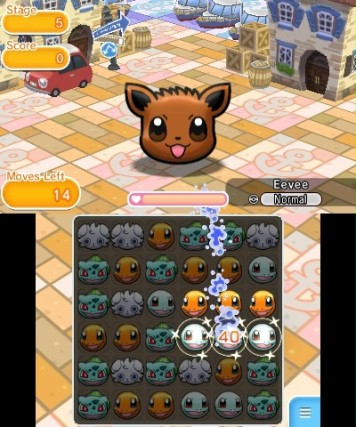
This will see you looking to match three or more Pokémon portraits either horizontally or vertically, after which they are torn away from the Puzzle Area to mercilessly deal damage to your opponent – new portraits tumbling down to replace them. The idea is that a well-calculated move will spark a chain of successive attacks, the opposing Pokémon’s HP bar unforgivingly being rapidly depleted in the process.
These Pokémon will toughen as you progress through Pokémon Shuffle’s near-300 hundred stages, meaning that increased scrutiny is required in leading you to victory. It’s not all plain sailing either, with enemy Pokémon able to cause disruptions to deter your success by encasing Pokémon portraits in wood, ice and metal. These can be cleared by encompassing them within your next move, but equally, run the risk of diverting your attention away from gaining a more strategic advantage.
Pokémon Shuffle isn’t entirely working against you, periodically presenting players with stages that will reward them with a Mega Stone if successfully completed. With the corresponding Pokémon in your collection and correctly positioned at the forefront of your enigmatic team, building an on-screen gauge will allow them to undergo Mega Evolution – each with different effects such as clearing entire rows, blocks or randomised portraits in the Puzzle Area.
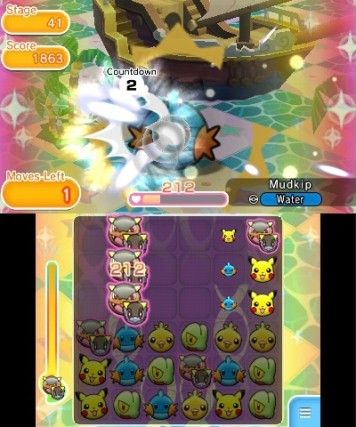
As mainstays of the Pokémon series, stage completion will reward your team with experience that can see them permanently level up to deal more damage when they are next used. Whereas there is a chance that you can catch the defeated Pokémon to join your growing ranks. There’s a success rate percentage attributed to this, reliant on how well you performed on the stage. You’ll add scores to your team early on, but as you progress this becomes an increasing frustration when even a 71 percent chance sees the opposing Pokémon escape the clutches of the wobbling Poké Ball.
Replay value comes in returning to completed stages to better your scores and capture any Pokémon that escaped your grasp, whereas a continual stream of special events is taking place that has so far seen Mew and Kyogre temporarily up for grabs. Whereas StreetPass support will allow you to share your gameplay records with any players that you wander by.
By this point, I’d say that I have painted Pokémon Shuffle in a fairly positive light. So, it’s an inevitable shame that the microtransactions disrupt and rot the entire experience so deeply. Players begin with five Hearts, and one must be used every time you wish to tackle a stage – even if you’re defeated. These Hearts are gradually replenished over time – one every 30 minutes, although limited to a maximum of five – but it means that you’ll have around 10 minutes playtime available to you every three hours.
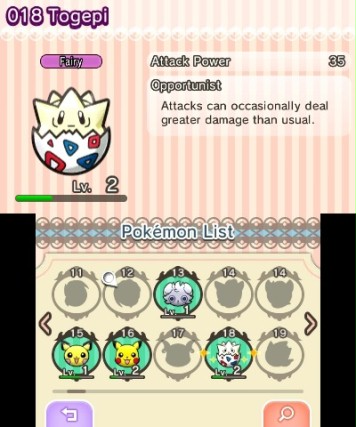
If you ever wish to extend this straight away, players are expected to fork out for Jewels on the Nintendo eShop – prices ranging between £0.89 for 1 Jewel, incrementally increased through to £42.99 for 75 Jewels. These can then be exchanged within the in-game shop, where 1 Jewel will provide an additional 5 Hearts similarly stepping up to trading 12 Jewels for 80 Hearts.
If that wasn’t enough Pokémon Shuffle also throws in Coins as a currency, used to purchase items that will allow you a competitive advantage when trying to achieve greater success on any one stage. This can be extra moves, multiplying earned experience, or preventing the opposing Pokémon from disrupting your progress as often. While these aren’t as much of a necessity early on, they certainly do become so later – especially when you look to take on the challenges directed your way in the additional Expert stages.
With the diverse age range that Pokémon attracts, it stings to realise that players will eventually reach a bottleneck where they’ll feel that they can’t continue without parting with some cash. For a series that has long clung to the “Gotta catch ’em all!” mantra, it feels a nigh on impossible accomplishment this time around – which is regrettable when the puzzle design’s irrepressibly fun – if nothing that we haven’t seen before elsewhere.
Version Tested: Nintendo 3DS
Review copy provided by Nintendo

